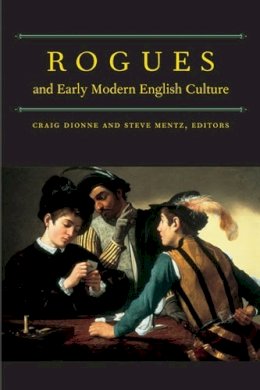10%OFF

Stock image for illustration purposes only - book cover, edition or condition may vary.
Rogues and Early Modern English Culture
. Ed(S): Dionne, Craig; Mentz, Steve
€ 33.99
€ 30.63
FREE Delivery in Ireland
Description for Rogues and Early Modern English Culture
Paperback. A collection of essays on the literary and cultural impact of the early modern rogue. Under various names - rogues, vagrants, molls, doxies, vagabonds, cony-catchers, masterless men - this group of marginal figures, poor men and women with no clear social place or identity, exploded onto the scene in 16th century English history and culture. Editor(s): Dionne, Craig; Mentz, Steve. Num Pages: 424 pages, 1 line drawing. BIC Classification: 2AB; DSBD. Category: (P) Professional & Vocational; (UP) Postgraduate, Research & Scholarly; (UU) Undergraduate. Dimension: 158 x 235 x 27. Weight in Grams: 628.
"Those at the periphery of society often figure obsessively for those at its center, and never more so than with the rogues of early modern England. Whether as social fact or literary fiction-or both, simultaneously-the marginal rogue became ideologically central and has remained so for historians, cultural critics, and literary critics alike. In this collection, early modern rogues represent the range, diversity, and tensions within early modern scholarship, making this quite simply the best overview of their significance then and now."
-Jonathan Dollimore, York University
"Rogues and Early Modern English Culture is an up-to-date and suggestive collection on a ... Read more
Product Details
Format
Paperback
Publication date
2006
Publisher
The University of Michigan Press United States
Number of pages
424
Condition
New
Number of Pages
424
Place of Publication
Ann Arbor, United States
ISBN
9780472031771
SKU
V9780472031771
Shipping Time
Usually ships in 7 to 11 working days
Ref
99-1
About . Ed(S): Dionne, Craig; Mentz, Steve
Craig Dionne is Professor of English Literature at Eastern Michigan University. Steve Mentz is Assistant Professor of English at St. John's University.
Reviews for Rogues and Early Modern English Culture
". . . rogues represent the range, diversity, and tensions within early modern scholarship, making this quite simply the best overview of their significance then and now."
-Jonathan Dollimore, York University
-Jonathan Dollimore, York University
